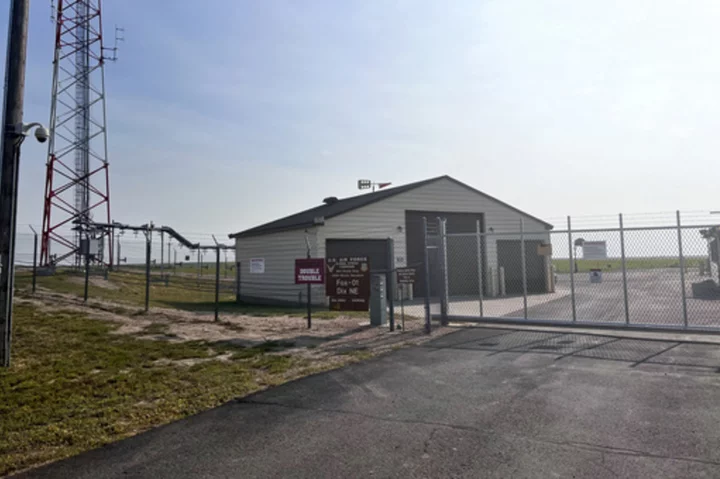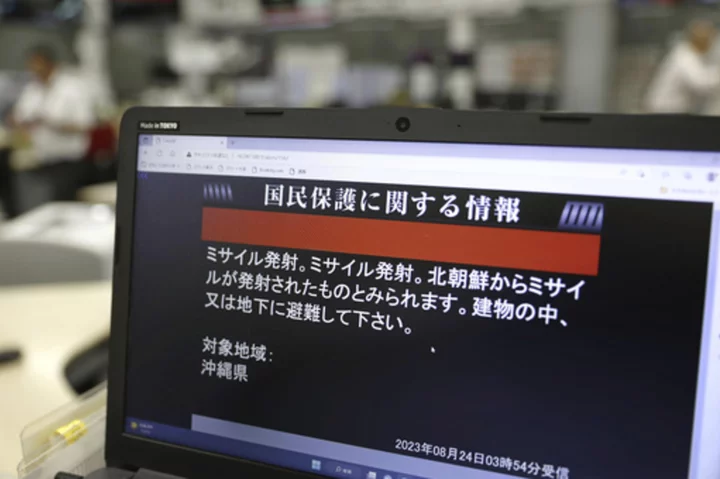WASHINGTON (AP) — No harmful levels of carcinogenic PCBs were found inside the missile launch facilities at F.E. Warren Air Force base in Wyoming, the service said Tuesday, as it looks for possible causes for cancers being reported among its nuclear missile community.
F.E. Warren is among three nuclear bases the Air Force is investigating. Earlier this month the Air Force reported it had found harmful levels of PCBs at two locations at Malmstrom Air Force Base in Montana. Results from Minot Air Force Base in North Dakota are pending, as are water quality tests from each of the locations.
The three bases house silo-launched Minuteman III intercontinental ballistic missiles. In underground capsules, pairs of missileers serve watch for 24 hours at a time, ready to launch the warheads if ordered to by the president.
The U.S. Air Force School of Aerospace Medicine collected air and swipe samples from the underground centers at F.E. Warren. No PCBs were detected in the air samples. Of the 300 surface swipe samples, 17 found detectable levels of PCBs, however all of the samples were below the threshold set by the U.S. Environmental Protection Agency for mitigation. PCBs are oily or waxy substances that have been identified as carcinogenic.
In response to the findings, Air Force Global Strike commander Gen. Thomas A. Bussiere directed the cleaning of those areas found with the trace levels of PCBs, even though they are below the EPA thresholds, the command said in a release.
The Minuteman silos and underground control centers were built more than 60 years ago. Much of the electronics and infrastructure is decades old. Missileers have raised health concerns multiple times over the years about ventilation, water quality and potential toxins they cannot avoid while on duty underground.
According to the Torchlight Initiative, an independent group of former missileers or their surviving family members, at least 268 troops who served at nuclear missile sites have reported cancers, blood diseases or other illnesses over the past several decades.









